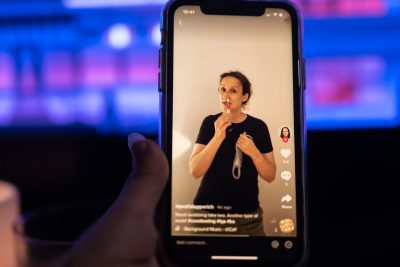All students learning in person at Boston University this Fall will be tested for COVID-19 twice a week and will be required to adhere to the new Massachusetts travel guidance, the University announced Monday in an email to the BU community.

Dean of Students Kenneth Elmore and interim Associate Provost for Undergraduate Affairs Suzanne Kennedy detailed health requirements related to COVID-19 for the upcoming Fall semester.
The new travel rule requires all individuals entering Massachusetts from designated high-risk states and other countries to either quarantine for 14 days upon arrival or to present a negative COVID-19 test from no more than 72 hours before arriving in the state.
There are currently eight states — all from the Northeast with the exception of Hawaii — exempt from the quarantine that are deemed to be low-risk for the coronavirus.
Students will be required to take a COVID-19 test once they arrive on campus. Those test results are expected to process before the 14-day quarantine is up, according to BU spokesperson Colin Riley. Students whose test returns negative before that period ends will be eligible to discontinue their quarantine.
Returning students will need to sign a digital agreement that they will adhere to public safety requirements, which include wearing face coverings, daily reporting of symptoms, regular testing and contact tracing, as well as quarantine and isolation.
Students will schedule testing appointments through BU’s new “Healthway” website, which will also allow students to complete their daily self-attestation of symptoms and view test results, as well as see their health compliance status.
Testing will occur at four locations: the Rajen Kilachand Center for Integrated Life Sciences and Engineering, 808 Gallery, the Agganis Arena lobby and 72 East Concord Street on BU’s Medical Campus.
The Medical Campus is piloting the program this week. Dean of the School of Medicine Karen Antman wrote in an email that the school has constructed a COVID-19 testing center in a central location on the campus, and that the first day of pilot testing “went smoothly.”
Students will engage in surveillance testing — the practice of testing community members who are not exhibiting symptoms — either once or twice weekly with the frequency of testing depending on their status in one of four testing categories. Undergraduate students living on campus will undergo the most frequent testing at twice per week.
Riley said tests will then be delivered to BU’s new test-processing facility located in the Kilachand Center, which will process thousands of tests per day. The facility will be overseen by Catherine Klapperich, professor and vice chair of the Department of Biomedical Engineering.
The University is being rigid in its testing protocols, Riley said. Although students may find it difficult to face a change to typical college life, he said the digital requirement is a requirement and not a request.
“We’re reasonable and rational, but we want to make sure that there’s compliance,” Riley said. “It isn’t to be punitive, it’s to ensure compliance.”
Mya Turner, a rising sophomore in ENG, said she feels reassured by BU’s frequent testing of students.
“It gives me more peace of mind about going back,” Turner said, “knowing that every three days you’re going to find out if you’re negative or not.”
Turner also said she has been reading about BU’s testing plan since May, and has confidence that the University will be prepared for the Fall semester.
Rising College of Arts and Sciences sophomore Junia Janvier said it is difficult for her to see how the University will be able to test so many students while simultaneously ensuring students are adhering to social distancing and quarantining requirements.
“They’re having people sign a permission form saying that they have to be tested and everything, but I don’t know,” Janvier said. “I still worry about how that could actually all happen. There’s so many schools, and everyone is doing different things.”
Despite her reservations, Janvier shares Turner’s sentiment that the University’s testing plan has, at the least, reassured her of her decision to return to campus for Fall.
“It helped knowing that I wouldn’t have to go out to Massachusetts clinics, for example, to get tested,” Janvier said.
Turner said she is confident in BU’s ability to successfully bring students back to campus in the Fall, but that she acknowledges the risk the University is taking in defying the fully remote semester model numerous other colleges are implementing.
“BU’s really putting themselves on the line, so that’s why I’m going to trust them,” Turner said. “Let BU show our country how to do this.”



























































































































